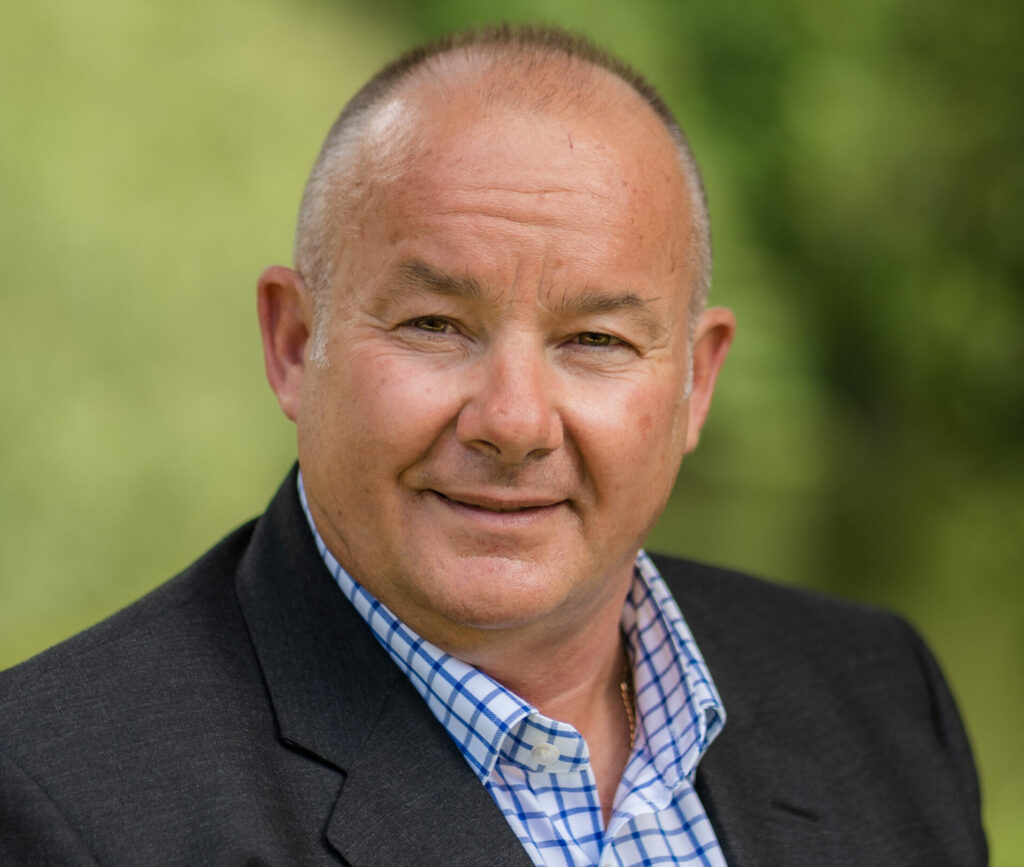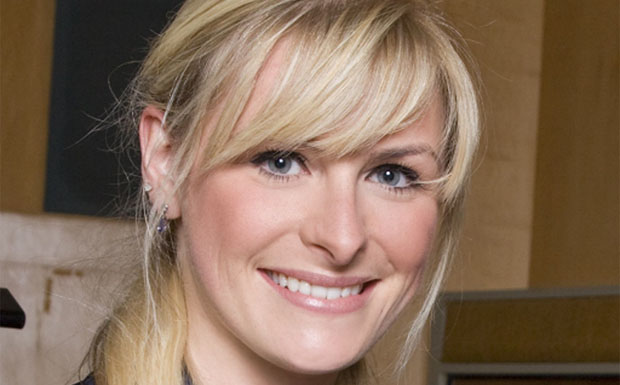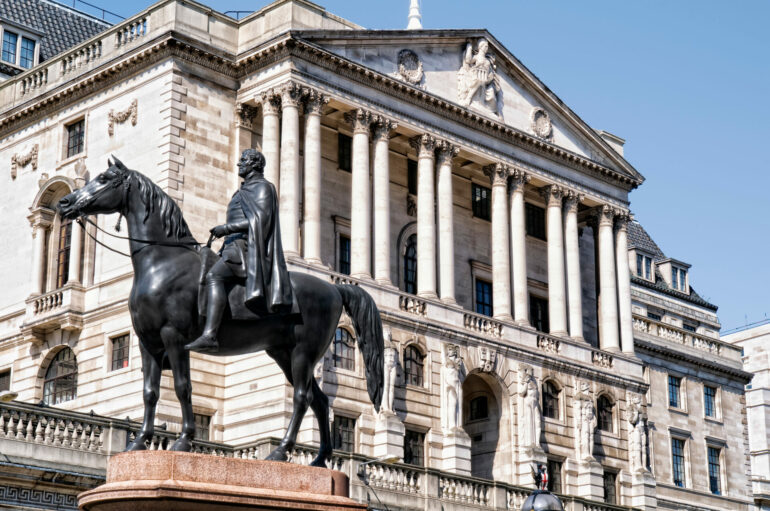The Bank of England (BoE) has increased the base rate to 1.75% – the highest level seen since December 2008 (2%).
The central bank has been gradually ratcheting up the base rate over recent months with 0.25% increases in February, March, May and June.
However, today’s 0.5% increase marks a more aggressive move from the BoE as it battles to contain inflation against a background of soaring energy bills and spiralling food prices.
Economists had been split about the prospects of the rise with fears of a recession looming large. In the end, the BoE’s Monetary Policy Committee (MPC) voted 8-1 in favour of the rise.
And the increase will undoubtedly spur another round of mortgage rate increases from lenders.
Figures published by the BoE last week show the effective interest rate on new mortgages rose to 2.15% in June, the highest level since late 2016 – this figure looks certain to increase further in the coming days.

Further rate increases by the BoE also look likely with headwinds facing the economy including the worst squeeze on consumer spending power in two decades, chronic labour shortages and continuing high fuel prices with colder months approaching.
Despite some signs that things are improving the International Monetary Fund is estimating that the UK may suffer the slowest growth in G7 next year.
This is despite rebounding from the pandemic more quickly than most other members.
And the struggles facing the economy has led to predictions of 15% inflation in 2023 – the BoE’s target for inflation is 2%.
The next decision on the base rate is due from the BoE on Thursday 15th September.
Give us your thoughts on the future of both mortgage rates and the base rate by taking our short survey here
Reaction
Ed Rimmer, chief executive officer at Time Finance:
“The latest interest rate rise is simply another blow to business confidence and places even more financial strain on our economic recovery as we continue to grapple with rising costs.
“There are arguable benefits to this move from the Bank of England as it has faced mounting pressure to keep up with the pace of global central banks, but it is short-sighted. We know that an interest rate rise alone cannot curb inflation; the challenges around soaring costs need to end somewhere because for UK businesses this simply isn’t sustainable.
“The IMF recently adjusted its predictions for UK growth in 2023 to just 0.5% compared with the predicted 1.2% earlier this year. So, the big question here is what will happen to these figures if Government intervention doesn’t happen soon? Well, for many businesses it will slow down growth, making the impending recession a self-fulfilling prophecy. Instead, we need action that stimulates economic growth.
“Few businesses have the luxury of using their own capital to finance investment, and for some, it isn’t enough to manage day-to-day expenses, like paying their own suppliers, HMRC or employees. That’s a worrying outlook.
“Already we’re seeing demand for finance rise, as business concerns grow over the possibility of a recession. Many, who were trading around the time of the last recession know just how challenging this can be and will fear that traditional lending routes, like the high street Banks, will close their doors once again and withdraw their support.
“The role of alternative finance has for a long time filled a void in supporting SMEs where some lenders have fallen short in challenging economic markets. Business appetite for growth doesn’t dwindle simply because some funders have tightened the purse strings.
“Businesses need and deserve funding partners who are available to listen and really understand their concerns, not turn their backs when the going gets tough. No one is in any doubt that borrowing must be done responsibly, wisely and at the right time but without it, the economic growth the UK desperately needs simply won’t be achievable.”
Oli Bland, head of lending at Black and White Bridging:
“While this increase represents the largest individual jump in interest rates in 27 years it is hardly unexpected.
“In the short-term, we can expect lenders to continue to reprice. While the majority of mortgage holders will be protected from the immediate effects of the rise by their fixed rates, a third of them have deals which expire in the next two years. As such many will have their eye on the future of interest rates.
“On top of that there are 1.1 million homeowners on standard variable rate mortgages and a further 850,000 on tracker rates. Intermediaries have a key role to play in helping households reduce their outgoings and lock in rates for the future.
“With predictions of inflation running at 15% by next year the new Prime Minister will need to act fast to help those suffering from the cost of living crisis.”

Paresh Raja, CEO of Market Financial Solutions:
“At the start of the week, the Bank of England scrapped mortgage affordability tests. Coupled with today’s significant hike in interest rates, we have to expect some changes in the property lending space.
“The challenge is to ensure the dual economic factors of rising interest rates and inflation do not result in inertia in the lending space.
“Flexibility from lenders is going to become so, so important in the months to come. In the current climate, using rigid tick-box methodologies will fail to serve the needs of property buyers.
“Rather, lenders must demonstrate a little more creativity in how they assess loan applications; they must endeavour to tailor their products and services to the needs of the individual borrower; and ensure they take a view of the bigger picture as far as affordability checks are concerned.
“Due diligence and rigour will, of course, be vital, but there is still room to adapt process and keep lending.”
Geoff Garrett, director of Henry Dannell:
“We’ve recently seen both the European Central Bank and the US Federal Reserve implement rate increases of 0.5% and 0.75% respectively and this has forced the Bank of England’s hand to act similarly in an effort to tighten their grip on rising inflation.
If it hasn’t already, this latest base rate jump will reverberate throughout the mortgage sector almost immediately, the result of which will be a notably higher cost for homebuyers and owners when borrowing to climb the ladder.”
Jonathan Samuels, CEO of Octane Capital:
“The Bank of England has acted forcefully in response to inflationary pressures with the largest base rate hike in over a quarter of a century and this is going to further rock what is already a very unsettled mortgage sector.
“While they walk the tightrope between curving inflation and avoiding recession, it’s the nation’s homeowners who can expect to pay the price with the monthly cost of their mortgage due to continue climbing.”
Marc von Grundherr, director of Benham and Reeves:
“This is the sixth time in a row that the Bank of England’s Monetary Policy Committee has chosen to increase interest rates, but today’s hike is the sharpest increase in borrowing costs since 1995.
“Those of us old enough to remember the nineties may view today’s jump as no reason to run for the hills just yet and it is important we remember that rates remain comparably low to historic levels.
However, it will certainly alarm a generation of homeowners who have known nothing other than a sub one percent base rate since purchasing their home and are now facing an end to this sustained period of mortgage affordability.”
James Forrester, managing director of Barrows and Forrester:
“The situation for homeowners is pretty desperate right now and rising inflation has already pushed many households to breaking point, as they’ve battled to manage the increased cost of living.
“Unfortunately things look set to get quite a bit worse before they get any better, with inflation predicted to hit 15% by spring next year.
“As a result, the cost of homeownership will become even less affordable, pushing it further out of reach for those already struggling with the financial hurdles of buying and owning a home.”
Chris Hodgkinson, managing director of HBB Solutions:
“The current economic landscape is fast becoming a melting pot for property market instability and we can expect a very turbulent time ahead, with regard to both the number of buyers entering the market, as well as the price they are able to pay.
“So far, the property market has stood firm in the face of increasing interest rates, but today’s jump is likely to put a dent in its otherwise impervious armour. As a result, we expect to see the rate of house price growth slow and it’s only a matter of time before this translates to a drop in property values in some areas of the market.”
Almas Uddin, founding director of Revolution Brokers:
“The nation’s borrowers have been feeling the pressure caused by a string of incremental 0.25% increases implemented since December of last year. So today’s decision will certainly come as a concern for those already struggling with the increasing cost of their mortgage repayments.
“Unfortunately, this looks as though it’s just the tip of the iceberg and along with the wider cost of living, mortgage payments are set to keep on climbing.”
Steve Seal, CEO, Bluestone Mortgages:
“Today’s decision comes as a major shock to consumers and borrowers across the country – with it being the biggest interest rate rise in over 25 years. This will no doubt put further strain on people who have already been feeling the squeeze on their personal finances amid the cost of living crisis.
“While this rate rise will no doubt prompt many borrowers into action to lock in a fixed rate or remortgage, we must remember that rates still remain close to historic average and there is help at hand.
“Now more than ever, brokers have a critical role to play in demonstrating the range of options available in the current market conditions that can help people achieve their homeownership dreams. And, for those customers who are concerned about how this rate rise will impact their ability to meet their mortgage repayments, we encourage you to speak to your lender. The earlier you can engage, the more personalised the support you will receive.”
Clare Beardmore, head of broker and propositions, Legal & General Mortgage Club:
“Following yet another UK base rate increase and with news of rampant inflation dominating the headlines, many homeowners will be left worried about how this latest news will affect their monthly repayments or ability to borrow.
“While it’s important the industry continues to monitor these signals, we need to stress that these economic headwinds are yet to cast a shadow over the housing market. Purchase activity shows little sign of cooling off, and buyer demand remains high. Many consumers will feel little immediate effect and certainly those on a fixed-rate products won’t feel any impact on rates until their mortgage deal comes to an end.
“That doesn’t, however, mean there isn’t work to be done. Borrowers on variable or tracker mortgages in particular will need reassurance and clear communication about what these changes mean for them. Advisers have a vital role to play interpreting these changes and explaining them to consumers, especially as the rise in living costs are forcing some borrowers to make difficult financial choices.
“For lenders too, this can be a difficult environment to navigate, and advisers will need transparency on product withdrawals or changing rates so we can ensure customers are still very much able to get a footing on the housing ladder.”
Iain McKenzie, CEO of The Guild of Property Professionals:
“Wrestling inflation under control and reducing the cost of living is the number one priority at the moment. Ultimately, this is key to ensuring that people can keep up with their mortgage and rent payments.
“Those on a tracker mortgage or people moving onto a standard variable rate will see their repayments increase again, adding to the pain from the surge in the cost of energy and essential goods.
“Homeowners on fixed-rate mortgages are in a better position, with no immediate effect on repayments. Keep an eye on the date when you are due to remortgage, as our research shows that around 1.5 million fixed-rate mortgages will end this year.
“These decisions could also affect house prices in the coming months. Over the last two years, we have seen unprecedented demand for property, which is in large part due to the ultra-low interest rates that have made getting a mortgage easier.
“As more people have wanted to get their foot on the property ladder, house prices have soared. Another consecutive interest rate rise could make potential buyers more hesitant about taking on a mortgage. If it does, we will likely see property prices cool off in order to entice more people to buy.”
Vadim Toader, CEO & co-founder of neolender, Proportunity:
“When we founded Proportunity in 2016, we wanted to help people get more for their money when they buy a home. With today’s interest rates rise however, lending services like ours could well become an essential part of the purchase process for most ordinary buyers. Many people across the country will be hit hard by rate rises and stretched even further to meet the requirements lenders will mandate on mortgage eligibility.
“Today’s announcement closely follows the recent £400 energy bill rebate designed by the government to help with the rising cost of living. However, tenants whose bills are included in their rent could be missing out if their landlord doesn’t pass this on, meaning they are losing out again. It’s clear more needs to be done to support those not just in the process of buying a house, but those looking to save and get on the property ladder too.”
Anna Clare Harper, director of real estate technology platform IMMO:
“Higher interest rates most significantly impact those borrowers on variable-rate mortgages. Those who have chosen flexibility over a fixed commitment – estimated to be circa 850,000 mortgage borrowers, according to UK Finance – will see their costs increase. Similarly, the 1.1 million borrowers on standard variable rates will see costs increase.
“It’s likely that as a knock-on effect, these property owners will become more willing to sell, and at lower prices, boosting liquidity and supply in the housing market.
“This is, however, expected to be a relatively short-term move, creating a temporary shift in negotiating power from sellers to buyers for the next 18 to 24 months rather than forever.
“As ever, cash buyers will have the upper hand but they will also now have a higher cost of holding cash.”

Tomer Aboody, director of property lender MT Finance:
“With the trend in rising interest rates continuing, the property market is slowly showing signs of calming down from the frenzy of the past couple of years.
“With property values at record highs, a continuous upward curve isn’t realistic and the return of more realism is long overdue. However, with fewer buyers but also far fewer sellers, we are still seeing activity in the housing market, especially when it comes to prime assets.
“How much more homeowners can absorb in terms of higher rates remains to be seen. There is a fine balance between managing inflation but also driving mortgage payers into unrealistic payment situations.”
Mark Harris, chief executive of mortgage broker SPF Private Clients:
“Mortgage rates were always likely to increase again at this meeting but we are close to the end of rate rises.
“If you look at Swap rates, then three, five and ten-year money is all lower than two-year money, suggesting the market feels rates will peak and start to come back down.
“That said, there is still value in fixed-rate mortgages and borrowers who need budgeting certainty should always fix. However, base-rate trackers are showing lower initial pay-rates and for those who can afford to be wrong – that is, if rates rise, they can still afford their mortgage – they are beginning to look a better option.
“Lenders repricing upwards is not always entirely a response to a change in the cost of funds but a defensive mechanism to preserve service levels. If banks feel they are being inundated with business and might struggle to cope, they may edge rates up slightly to make them less attractive to borrowers.”
Jeremy Leaf, north London estate agent and a former RICS residential chairman:
“Although recent reports confirm house prices are still rising, there is no doubt increased mortgage costs, and of course, the cost-of-living crisis, are having an impact on activity, as well as new business. Low supply and near-50-year-low unemployment, as well as rising rents, are continuing to underpin demand for homes to buy, despite increasingly stretched affordability.
“We know the Bank of England has very few tools in its box when it comes to controlling inflation and reducing the risk of recession so a rise in interest rates seemed inevitable. Controlling inflation without compromising economic growth is the trick the Bank is trying to pull off.
“Fortunately, 80% of mortgage holders are said to have taken advantage of fixed rates so won’t be immediately affected. But those whose fixed-rate mortgages are ending soon will be taking nervous looks over their shoulders with regard to the likelihood of further uplifts.”
Rose Lyle, director of private clients at property consultants INHOUS:
“With many of our buyers purchasing for cash, not everyone will be impacted by the latest interest rate rise as not everyone needs to raise finance. However, it may negatively impact confidence for the many people who rely on a mortgage for their purchase, particularly those in the £750,000 to £2m bracket who are facing all the pressures of the rising cost of living.
“At the upper end, another rate rise will have less of an impact than in the mainstream market. It may effect the levels of stock that become available at some point but we are not seeing that yet.”

Vikki Jefferies, proposition director, PRIMIS:
“We’ve seen a seismic decision in British monetary policy history today, with the base rate being increased by the largest amount in 27 years, from 1.25% to 1.75%. Faced with the task of reducing the highest inflation in four decades, it’s not surprising to see the Bank of England (BoE) flex its muscles to increase interest rates to combat the rising cost-of-living.
“Although some may understandably feel concerned, it’s encouraging that this decision comes as the Bank withdraws mortgage stress testing rules, making it easier for some buyers to get a foot on the property ladder. The housing market also remains robust, with demand for property remaining healthy.
“Brokers will need to be increasingly proactive to secure the best outcomes for their clients at a time when many consumers may be looking to lock-in or move to longer term fixed rate mortgages to protect themselves from further rate rises down the road. During these complex economic times, networks offer a wealth of resources and products to ensure brokers can provide choice and flexibility to cater to the ever-changing financial needs of their clients.”
Simon McCulloch, chief commercial & growth officer at Smoove:
“It should be remembered that today’s 0.50% hike comes hot on the heels of the Bank of England scrapping the affordability test for mortgage customers from the beginning of August so there’s mixed news for home movers.
“First-time buyers in particular will find it increasingly difficult to find an affordable loan, following today’s news, although demand remains high and the market continues to perform strongly.
“Today’s rate hike and the prospect of more to come means that those on a standard variable rate mortgage should consider looking at what options are available and perhaps locking into a more affordable fixed-term mortgage, before rates rise even further.”
Adam Ruddle, senior investment manager at LV=:
“The Bank of England’s decision to raise interest rates by 0.50% was in line with our expectations.
“The Bank is trying to strike a balancing act between managing economic growth and surging inflation, a challenge it has not faced for many years. Whilst monetary tightening helps tackle inflation it does so by constraining economic growth.
“The Bank had to tighten policy harder than before in an attempt to ward off further stronger action and to keep up with the historic large rises in interest rates by other central banks, notably the Federal Reserve.”
Paul McGerrigan, CEO at fintech credit broker Loan.co.uk:
“The committee has followed through on its June warning that it would get tough if inflation continued to rise unchecked to give us the highest rate rise in 27 years.
“Given that much of the origin of the stimulus of inflation – the war in Ukraine, the post covid recovery and Brexit – is beyond the bank’s control, this will just drive more challenge in the socio-economic mix and continue to tighten the vice on already tight household budgets. If rises continue at the same rate as we’ve seen in past months, we could expect to see rates hit three per cent by spring.
“This leaves a significant challenge for Boris Johnson’s successor who will quickly need to get to grips on the nation’s finances.
“In the backdrop, though, there are many who will struggle, and those on fixed and tracker mortgages will want urgent reviews in order to lock in a dependable rate. Now is the time for brokers to throw their arms round clients and be proactive in organising reviews.”

Emma Hollingworth, distribution director at MPowered Mortgages:
“Today’s historical interest rise marks the culmination of a trend which has been gathering pace this year in response to continuously rising inflation. As has been the case in previous months, it is expected that lenders across the board will be looking to raise lending rates in line with the new base.
“This may impact appetite to some extent but the housing market has proved incredibly resilient and demand is expected to remain strong. What will be more important than ever now is the speed at which mortgages can be processed. Time really is of the essence.
“With current economic trends likely to continue for the foreseeable future, it is key that brokers offer their clients a mortgage journey that allows them to secure a mortgage as quickly and efficiently as possible, before rates move again.
“At MPowered Mortgages, we use AI to speed up and improve the mortgage process, giving consumers a smoother experience of getting a mortgage. As these unprecedented times continue, being able to offer efficiency in this way is becoming increasingly important.”
Sarah Pennells, consumer finance specialist at Royal London:
“Today’s half-point hike in interest rates from 1.25% to 1.75% will be dismal news for borrowers already digesting successive rises this year. While the Bank of England raises interest rates ever higher in an attempt to reduce inflation, which reached a 40-year high of 9.4% in June, people with variable rate mortgages face higher payments, weeks ahead of the energy price cap rise on October 1st.
“A 0.5% rise in mortgage rates will cost someone with a £200,000 25-year repayment mortgage over £50 extra a month. And of course the rise of other costs mean people’s pockets will be being hit hard – but a year ago the base rate was just 0.1%, so borrowers with a £200,000 mortgage are now paying approximately £180 extra a month. That’s on top of higher food and fuel prices.
“Savers, on the other hand will be encouraged that savings rates, if passed on fully, will see rates come out of the doldrums. Banks and building societies don’t necessarily raise interest rates on all their savings products and may not increase them by the same amount, so it’s worth waiting a few weeks before checking comparison websites and best-buy tables to see if you can get a better interest rate.”
Scott Taylor-Barr of Shropshire-based broker, Carl Summers Financial Services: “
With rates rising yet again, the sensible response may seem to be to lock into a fixed rate for as long as you can, but it’s probably not the right one. At the moment, fixed rates are carrying a far larger premium over variable rates than we have seen for quite a while.
“For example, why is fixing at 3.59% a good idea if you can have a discounted variable rate at 1.85%? That’s a 1.74% premium to have the security of a fixed rate. You need quite a few rate rises before the variable rate even matches the fixed rate, let alone surpasses it.
“And be especially careful if you are thinking of jumping out of a currently really low fixed rate and paying a penalty to do so, to lock into a new rate now. What if the current upwards interest rate cycle is not sustained and fixed rates begin to fall back in 2023?
“You’ll have lost out on the remainder of your really low rate deal, paid a penalty to your old lender and now be locked into a more expensive rate. So, think carefully, don’t make a hasty decision and make sure you get good quality, professional mortgage advice.”
Ross Boyd, founder of the always-on mortgage comparison platform, Dashly.com:
“After this rate increase, many people coming to the end of their fixes are going to be facing a world of pain. And more rate rises are likely as the Bank of England seeks to bring inflation to heel.
“Though this latest rate increase was expected, it’s a big one and a statement that the era of ultra-low rates is now over. It’s more important than ever that existing and prospective homeowners seek advice from independent mortgage brokers, and challenge their mortgage every day in order to make savings, as we are currently in highly uncertain and volatile times.”

Andrew Montlake, managing director of the UK-wide mortgage broker, Coreco:
“It’s batten down the hatches time for Britain’s mortgage holders. The Bank of England has shown its teeth today with this 0.5% hike and more rate rises are almost certain this year to control runaway inflation, which will only get worse due to more energy price hikes in the Autumn.
“The worry is that these rate rises are doing little to help and the higher we go, the more borrowers will start to hurt and struggle with the additional burden on top of the ever-growing cost of living crisis.
“We have already seen lenders putting up their rates again this week in preparation, but borrowers should now be prepared for some further changes from lenders with little notice.
“For those looking at buying, quick decisions need to be made before lenders hike their offerings, whilst those looking at remortgaging should be looking at locking into a rate six months before their existing product expires.”
Gindy Mathoon, founder of Derby-based mortgage broker, Create Finance:
“With rates rising by 0.5%, we may soon start to see people downsize or sell their properties so that they can cope with the cost of living crisis. This could result in a wave of properties coming onto the market, which potentially could lead to property prices decreasing.
“With short-term fixed rates increasing, applicants are now increasingly opting to fix for a longer term because of the uncertainty in the current financial climate. What we are also likely to see is people extending their mortgage terms just to cope with the increased cost of their mortgage payments.”
Samuel Mather-Holgate of Swindon-based Mather & Murray Financial:
“This expected increase to the bank base rate is good news for savers in theory, but holding money on deposit is still a sure-fire way of losing money in real terms. Some banks will not pass the full increase onto customers as they look to shore up their balance sheets ahead of what is widely predicted to be a sharp recession.”
Philip Dragoumis, owner of London-based wealth manager, Thera Wealth Management:
“UK interest rates were raised by 0.5% as many expected but the Government bond markets see interest rates peaking at around 3% maximum. Long-term bond yields have fallen significantly over the past month with the 10-year falling to 1.9% from a high of 2.6%. This means the markets predict that inflation will fall, that there will probably be a recession and that eventually interest rates are likely to be cut again.
“For investors saving into their pensions for the long-term, there is no need to make any changes. Clearly every portfolio’s composition depends on the risk profile, tolerance and liquidity needs of the investor but over the long-term only a significant allocation to equities will lead to returns above inflation, if history is our guide.
“Stockmarkets have recovered off their lows as have bonds, showing how wrong it would have been to have made big allocation changes to portfolios on the back of one quarter’s performance. The short-term as always remains unpredictable so we always recommend to stick with the long-term plan.”
Joshua Gerstler, chartered financial planner at Borehamwood-based The Orchard Practice:
“They won’t be popping the champagne corks quite yet, but this latest rate rise is good news for savers.
“Those who are holding money in bank accounts are taking a pounding from inflation being so high and this latest increase will ever so slightly ease the pain. Those with longer term investments such as pensions and ISAs should continue to stick to their plan.”
Mark Hosker, director of Bradford-based Cyborg Finance:
“Mortgage Lenders in recent weeks have been increasing their rates in anticipation of Thursday’s rate increase. With inflation continuing to rise, lenders will continue to factor in potential future rate announcements in the next few months.
“Existing mortgage borrowers with six months or less remaining on their initial term should start the discussion with their mortgage adviser today. 2-year fix is short-term and may land borrowers back into a market with high-interest rates.
“A 5-year fix gives borrowers certainty of payments for a longer term with fingers crossed inflation has been handled with interest rates decreasing again as a result. Variable rates are much lower than a fixed rate mortgage and may draw some attention but come with the risk of them increasing and giving borrowers no certainty of what the monthly mortgage payment will be.
“A long-term fixed rate mortgage can look attractive in today’s market but borrowers who may potentially need to sell their home within that timeframe should be wary of early exit fees.”
Lewis Shaw, founder of Mansfield-based Shaw Financial Services:
“Any increase in interest paid to savers because of Thursday’s base rate rise is dwarfed by such high inflation levels. And then you have the double whammy of price cap rises in October and January, taking the average home energy cost to over £3,500 a year, all of which will make everyone poorer.
“It gets even worse for mortgage holders who, having to find extra money for food, fuel and energy, are being squeezed by increasing mortgage rates simultaneously. First-time buyers won’t feel the pinch as much because they’re usually moving from rented accommodation, which, as we know, is often higher than the cost of a mortgage. That said, anyone taking out a new mortgage will feel hacked off.
“After years of historically low rates, they’re now on the up, and they’re unlikely to ever come down to sub-1% where they were just 12 months ago. Considering all this, I think the base rate will be 2.5% by December.”

John Phillips, national operations director at Just Mortgages:
“This latest rate rise heralds the most important period for mortgage advice in a decade.
“I don’t think that anyone will have been caught off guard by the rate rise which the Bank Governor hinted at last month, but this is the sixth increase in a row and arguably the most significant in recent years as it brings us within touching distance of two percent. The last time we saw a base rate that high was December 2008 and in many ways there is more uncertainty now that there was then, even in the midst of the credit crunch.
“As mortgage rates rise, feedback from our network of brokers across the country reveals that they are working overtime to secure the lowest deal for clients before rates rise further and lending criteria tightens which will be exacerbated by this latest rise.
“There is no doubt that borrowers are confident in the value of their homes but they are becoming increasingly nervous about the impact of fuel, food and energy price rises on lenders affordability criteria and their potential to secure the loans they need at the price they want. Now, more than any time in the past decade, the knowledge and experience of professional mortgage brokers is crucial.”
Jamie Lennox, director at Norwich-based mortgage broker, Dimora Mortgages:
”For potential and existing mortgage holders, there is no one-size-fits-all solution as to what they should do with their mortgage with rates rising.
“Some clients will need that longer term security and can’t afford to take the risk that rates will continue to rise, others will have the disposable income available to take the chance that rates may come back down at some point in the future and may look at fixing for a shorter duration.”
Graham Cox, founder of the Bristol-based broker, SelfEmployedMortgageHub.com:
“Thursday’s rate increase was priced in but how high rates could go this year will depend on events across the pond. The Fed has already raised rates by 0.75% twice in quick succession. With commodities including oil and gas priced in US dollars, a weakening pound against the greenback is highly inflationary for UK imports.
“This is the dilemma the Bank of England faces. Raise rates too much, and the UK faces a prolonged and deep recession. Not enough, and inflation tightens its noose around the economy.
“For mortgage borrowers, locking in now to a fixed rate for several years at least removes uncertainty. Rates could go a lot higher, potentially to 4% or more in the next 12 months. Mortgage rates, if that happens, will be around 5%.This will be catastrophic for anyone coming off a fixed rate and needing to remortgage.”
Dominik Lipnicki, director of Your Mortgage Decisions:
“Lenders are often quick to react to a Bank of England rate rise yet all too often the savers get left behind and see little benefit in the rate increase.
“We are seeing more and more mortgage borrowers looking at longer term fixed rates to have that much needed stability. With the cost of living crisis, huge energy price increases, many face a testing time and few believe that the situation will get better in the short to medium term. It is clear that the next Prime Minster will need to do more to help people get through the upcoming winter.”
James Miles, director of Exeter-based broker, The Mortgage Quarter:
“The biggest losers with rates going up again are low earning people, who are already in ‘energy poverty’ and this will only sink them further into despair. For savers, banks are generally extremely slow to pass on the full increase in rates but even what is passed on will be largely irrelevant considering the massive gulf with inflation.
“Pay off your debts first and consider long term investments to combat the rise in living costs. Mortgage borrowers should be shopping around six months prior to their product expiry date so a decent broker can secure them a rate before further rises come into play.
“It’s still massively important you get advice and search the whole market for the right deal to fit your circumstances. There is no loyalty for staying with your bank for lending or saving. Face the ongoing crisis and plan for increased costs by budgets and cutting back on those unnecessary Direct Debits.”
Doug Miller, director at Bath-based independent mortgage broker, Lansdown Financial Services:
“The most important thing in the current rising rate environment is to ensure people truly understand their own finances before purchasing a property and taking on a mortgage debt.
“Just because a mortgage lender can lend you X doesn’t mean you should borrow the maximum amount possible. Every single person has different spending habits, and understanding what is actually affordable to you is vital.
“With both the cost of living and interest rates soaring, completing an in-depth review of your own finances to understand what truly is an affordable monthly payment is vital, whilst also budgeting for higher interest rates and monthly payments in the future.
“Whilst longer term fixed rates are very attractive and similarly priced to 2-year deals for the first time in decades, early repayment charges on the longer term seven and ten year deals are astronomically high, meaning that it has never been more important to plan ahead and understand your future plans before committing to a mortgage product.”
Marcus Wright, MD of independent mortgage broker, Bolton Business Finance:
“We are heading into unknown territory with the base rate and inflation. Although there is some benefit to savers, they would need to be pretty much mortgage/debt free or it will be cancelled out with rate rises.
“Also, the gap between inflation and savings rates is much higher now despite the increase in savings rates, reducing real world purchasing power. There are very few winners in the current inflationary and base rate increase spiral. My person view is we are heading for recession early 2023.”

Nicky Stevenson, managing director of national estate agent group Fine & Country:
“Previous interest rate rises have failed to dampen growth in Britain’s red-hot housing market — but today’s hike is the biggest in more than a quarter of a century and will of course be painful for many.
“As is often the case, that pain will be felt most by those who can least afford it. New entrants to the market will continue to struggle with affordability requirements while existing homeowners who have made spectacular gains during the boom remain in a strong position to trade-up.
“In fact, many homeowners coming off fixed rate deals might suddenly find themselves with improved loan-to-value brackets, which would make them eligible for more attractive financing, and help them mitigate recent increases in the base rate.
“And don’t forget there are currently eight million homeowners who are completely mortgage free and won’t be impacted at all by today’s announcement.
“For those on standard variable rates, the arguments in favour of switching to a fixed deal have never been more compelling. Fixing rates now will allow you to insulate yourself against further rises for years to come.”
Simon Webb, managing director of capital markets and finance at LiveMore:
“Today’s rise is the largest rise in base rate since 1995. While still low by historic standards, it is going to hit everybody on a variable rate hard, and is likely to create more mortgage prisoners as, despite the cancellation of stress testing, many people will be forced to pay a lender’s SVR because they can no longer meet the affordability tests to move to a different lender.
“Older borrowers could well be hit particularly hard. If ever there was a time to switch to a long term fixed rate it is now, as interest rates look likely to rise for some time yet, with interest rates expected to hit 3% potentially by the end of this year.
“We also expect the demand for interest only mortgages to increase in order to help make mortgage payments more affordable.”
Adrian Anderson, director of property finance specialists, Anderson Harris:
“The interest rate hike today to 1.75% is no surprise after the US made its biggest interest rate rise in almost 30 years yesterday.
“Inflation is running red hot and this interest rate rise means higher borrowing costs for mortgages, credit cards and other loans.
“The question I keep on being asked is ‘Whenwill these rate hikes stop?’ and I don’t think the MPC know the answer to this question. The Bank of England are playing catch up as at the beginning of the inflation crisis we were told this is a temporary issue due to supply chain problems and this is clearly not the case.
“This is not a UK problem but a huge change for the global economy as Australia, Canada, Brazil have also raised rates and the European Central Bank have outlined plans to increase rates over the summer.
“We are encouraging homeowners to remortgage as early as they can and are contacting our clients six plus months in advance rather than the usual three/four months before a rate renewal due date.”
Richard Tugwell, director of mortgage distribution at Vida Homeloans:
“Rates have steadily spiralled over the last six months and there are no signs of a slowdown.
“Affording a mortgage or even just being able to get on the property ladder is getting harder. Our recent research showed that 94% of keyworkers who are looking to get on the housing ladder don’t believe that they can get a mortgage at the moment.
“Today’s 0.50% rate increase to 1.75% will not have made prospective homeowners sleep any easier, so now is the time for people who are looking to get on the housing ladder to visit a mortgage intermediary and review their options.
“Specialist lenders see beyond the numbers and treat customers as individuals.”



